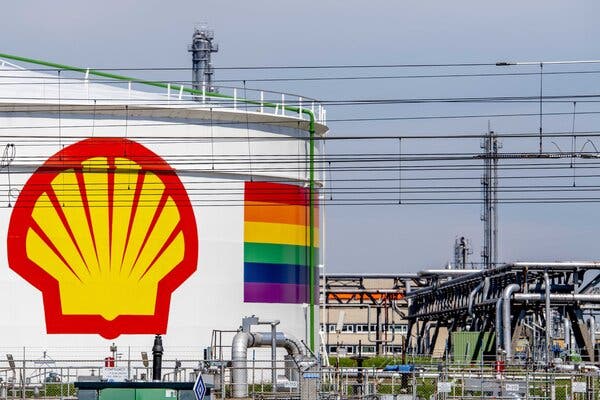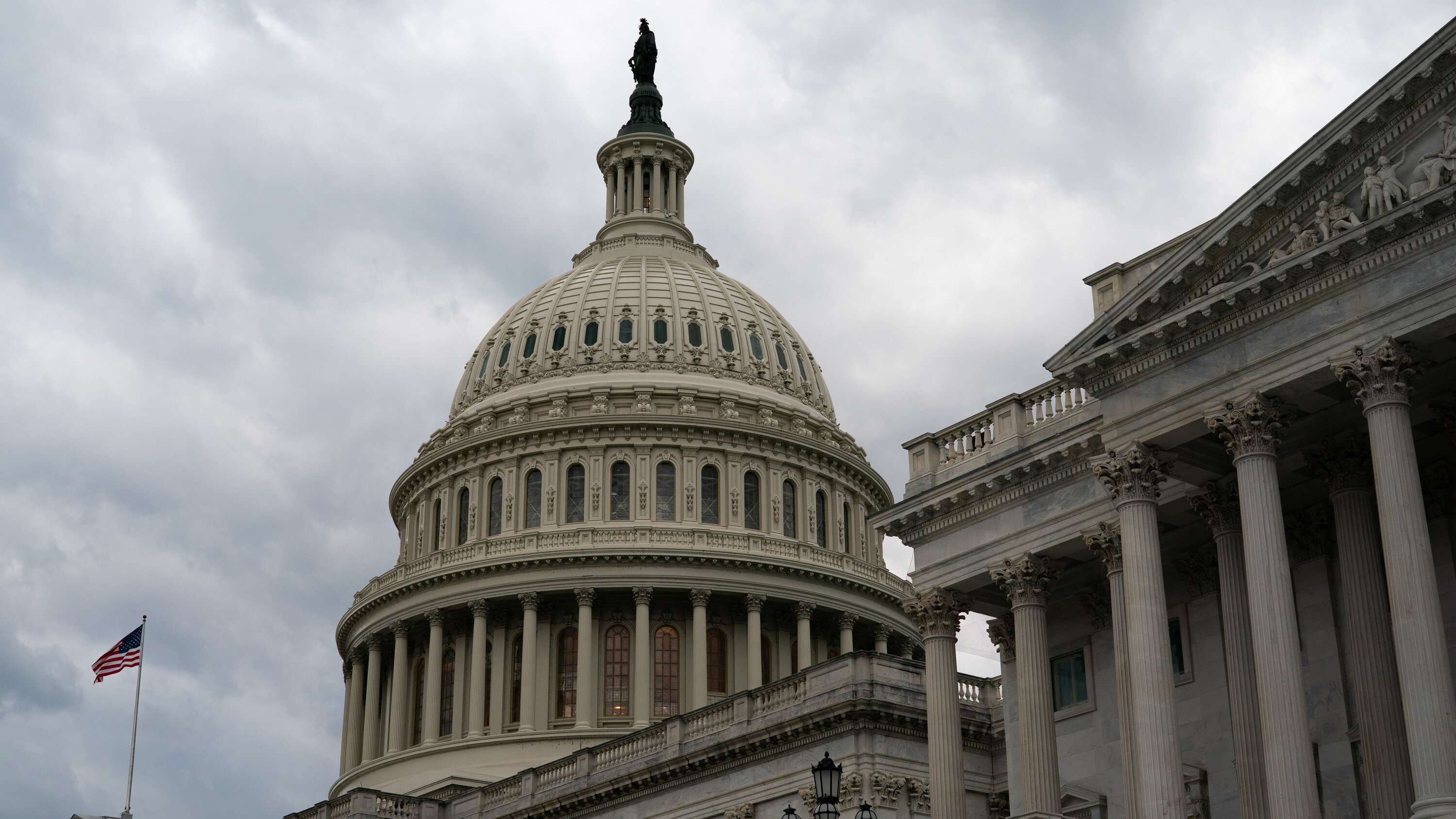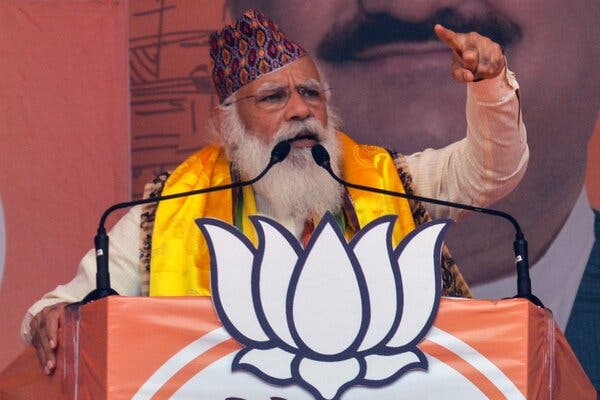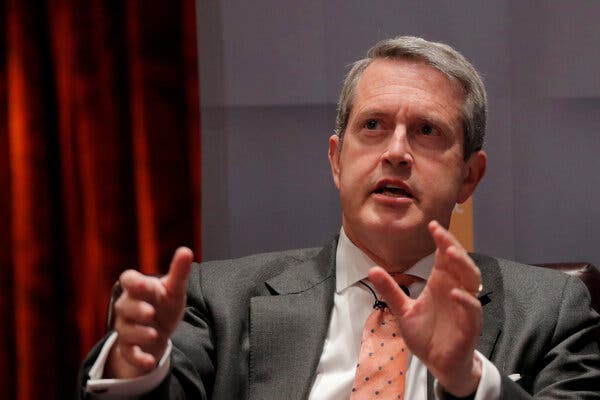
Many applicants to the government’s pandemic relief program for restaurants, bars, caterers and other food businesses will be left empty-handed unless Congress provides more money for the $28.6 billion grant program, the head of the Small Business Administration said on Wednesday.
The agency’s Restaurant Revitalization Fund received more than 372,000 applications, seeking $76 billion — far more than the fund has available, the administrator, Isabella Casillas Guzman, said at a House Small Business Committee oversight hearing.
“There will be significant demand unmet at the close of this program,” Ms. Guzman said. The agency stopped accepting applications for the grants on Monday.
Congress created the restaurant fund in March and ordered the agency to prioritize applications from women and veterans, as well as minority business owners who meet certain income and asset limits. More than 208,000 applications met those requirements and will be funded first, Ms. Guzman said.
“I’m proud of how we’ve rolled out this program in under two months,” Ms. Guzman said.
Representative Jim Hagedorn, Republican of Minnesota, criticized the prioritization system as discriminatory. Those who won’t make the funding cutoff “happen to be, let’s just be honest with it, white men that own bars and restaurants.”
Representative Angie Craig, Democrat of Minnesota, said she was “disappointed” many restaurants would be shut out, and encouraged her colleagues to extend the program’s funding. “Our government asked them to shut down during a public health crisis,” she said. “We need to work together to uphold our ongoing commitment and replenish this fund.”
A second grant program run by the Small Business Administration — the Shuttered Venue Operators Grant, for live-event businesses like music clubs and theaters — appears to have enough funding for all qualified applicants. The $16 billion program, which is still accepting applications, has so far received 13,000 applications, totaling around $11 billion, Ms. Guzman said.
But the venue grant program, created nearly five months ago, has moved far more slowly than the restaurant fund, which has already sent checks to its earliest recipients. Award letters will finally start going out this week, Ms. Guzman said.
The National Independent Venue Association said none of its members had yet received a decision on their applications. “The emergency relief can’t come soon enough and we’ll be incredibly grateful when it starts flowing,” said Audrey Fix Schaefer, a spokeswoman for the trade group.

A Dutch court ruled Wednesday that Royal Dutch Shell, Europe’s largest oil company, must accelerate its efforts to reduce carbon dioxide emissions to tackle climate change.
The District Court in The Hague ruled that Shell was “obliged” to reduce the carbon dioxide emissions of its activities by 45 percent at the end of 2030 compared with 2019.
Shell has already adopted targets for emissions reduction, but the terms of the court’s decision could require the company to substantially accelerate the process of reducing emissions-producing fuels like oil and gas.
At present, Shell says it hopes to achieve net zero emissions by 2050, with a series of interim targets along the way.
A spokesman said that the company expected to “to appeal today’s disappointing court decision.”
The ruling will likely only apply in the Netherlands, and it is unclear how it would be enforced. There was also a small consolation for Shell: The court found that the company’s current carbon dioxide emissions were not unlawful.
Still, the defeat of an oil giant by an environmental group — Milieudefensie, the Dutch wing of the Friends of the Earth, joined by other activists — appeared to represent a breakthrough in a court’s willingness to dictate to a major business what it must do globally to protect the climate.
“It really stands out,” said Eric De Brabandere, a professor of international law at Leiden University in the Netherlands, who was not involved in the case. “Clearly this will inspire other cases.”
However, he said, Wednesday’s decision was influenced by peculiarities of Dutch law — Shell is based in The Hague — and so might have limited relevance in other countries where environmentalists might launch suits against oil companies.
The Dutch court largely accepted the argument that Shell had a duty to move faster on emissions — especially to the people of the Netherlands, who could be at risk from rising sea levels and other dangers from climate change.
Essentially, the Dutch environmentalists are leaning on the courts to take action to reduce global warming, where they believe the government has not done enough.
“It’s pushing the judge into a position where he or she is influencing changes in the law or policy,” he said. “It goes beyond the traditional idea that the judge applies the law.”
The plaintiffs were jubilant after the victory.
“This ruling will change the world,” said Milieudefensie’s lawyer, Roger Cox. He predicted that people would now be “ready to sue the oil companies in their own countries based on our example.”
The environmentalists were taking on their country’s largest and most influential company.
“The court understands that the consequences could be big for Shell,” Jeannette Honée, a spokeswoman for the court, said in a video on the court website.
“But the court believes that the consequences of severe climate change are more important than Shell’s interests, ” she added.
The court also conceded that Shell had already taken numerous steps on climate change including subscribing to the goals of the 2015 Paris accords as well as the climate targets of the Dutch government. However, the court decided that such moves were not sufficient.
Shell’s “policy intentions and ambitions,” the court said, “largely amount to rather intangible, undefined and non-binding plans for the long-term.”
“Severe climate change has consequences for human rights, including the right to life. And the court thinks that companies, among them Shell, have to respect those human rights,” Ms. Honée said.
Shell argues that it recognizes the imperatives of dealing with climate change and that it is moving with appropriate speed. The company said that it already had an extensive program to reduce emissions, and that it is investing billions of dollars in low-carbon energy including hydrogen, renewables like wind and solar and electric vehicle charging.
“We want to grow demand for these products and scale up our new energy businesses even more quickly,” Shell said on Wednesday.
transcript
transcript
Wall Street Chiefs Testify Before Senate
Executives of major banks testified to the Senate Committee on Banking, Housing and Urban Affairs with an emphasis on financial instability and inequality during the coronavirus pandemic.
-
“The purpose of today’s hearing is to show Americans their government is finally looking out for them, that we understand this economic system has betrayed millions of workers, that it holds our country back. Here’s what we want to hear from you today. What are you and the companies you run going to do, not just say, but actually do to change? We want to hear what concrete actions you’ll take to change the incentives on Wall Street to reward work instead of just rewarding wealth, to pay for and work to undo the damage that Wall Street has done and continues to do to communities of color.” “But I am concerned about increasing pressure on banks to embrace ‘wokeism’ and appease the far-left’s attacks on capitalism. And I worry that continuing down this path could lead to distorted credit allocation, activists seeking to make political change through the financial system instead of through the democratic process.” “The origins of this global crisis, unlike the last one, this is a public health crisis with severe economic consequences. And through this pandemic, Citi has shown we’re a very different bank than the one that entered the financial crisis more than a decade ago. We’re smaller, we’re safer, we’re stronger and we’re far less complex. And we have had the financial resources to support our clients and communities through this crisis.” “We’re able to help our clients and ultimately, the U.S. economy through the worst economic shock in recent history, while at the same time increasing investments in support of our teammates and our communities. For our clients, that included financial assistance for our business-as-usual work, and also helping to deliver the timely federal relief programs. We at Bank of America believe in capitalism, and it’s the best way to solve the challenges that are facing society. We operate by delivering great returns for our shareholders and delivering for society. We call that responsible growth.”

The top executives of six of the biggest banks in the United States drew criticism from several senators during a hearing on Capitol Hill on Wednesday for not doing more to help small businesses and retail customers during the pandemic.
A number of lawmakers said the nation’s top banks should have provided more relief to businesses and consumers in light of the big profits the banking industry posted last year.
The most contentious moment occurred when Senator Elizabeth Warren, Democrat of Massachusetts, criticized banks for charging overdraft fees to customers during the pandemic. In particular, Ms. Warren engaged in a terse exchange with Jamie Dimon, chief executive of JPMorgan Chase, over the around $1.5 billion in overdraft fees she said the bank had taken in. Mr. Dimon responded with a simple “no” when asked by Ms. Warren whether the bank would refund that money to its customers.
Senator Sherrod Brown, Democrat of Ohio and chairman of the Senate Banking Committee, asked Mr. Dimon if he felt he made too much money as a bank executive compared with his employees. Mr. Dimon responded — as he has when questioned about the issue in the past — that his “compensation is set by the board.”
But the hearing lacked much of the heat and acrimony of a decade ago, when bankers on Wall Street were routinely castigated during congressional appearances for causing the financial crisis.
The Republicans on the panel were less interested in inquiring about specific banking policies than they were in criticizing some banks for having sided with progressives in voicing opposition to issues like restrictive voting laws. Senator Tim Scott, Republican of South Carolina, said he was concerned that some banks practiced what he called “woke capitalism.”
Throughout the hearing, the bankers often found themselves in agreement on a number of topics, including supporting efforts for immigration reform. Asked whether they would “remain neutral” if their employees moved to unionize, most provided noncommittal answers, saying they would make sure their workers’ voices were heard (the exception was Mr. Dimon, who answered no). Unsurprisingly, all the bank chiefs said they were strong believers in capitalism, in response to a question from Senator Patrick J. Toomey, Republican of Pennsylvania.

Ford Motor said on Wednesday that it would increase spending on electric vehicles by about a third from its previous plans and expects E.V.s to make up 40 percent of its production by 2030, a big increase in its commitment to the electrification of cars and trucks.
The company intends to spend $30 billion in the five years ending in 2025, up from the previous target of $22 billion. It also said it had accepted 70,000 reservations for the F-150 Lightning, the electric version of its top-selling pickup truck.
“This is our biggest opportunity for growth and value creation since Henry Ford started to scale the Model T,” Ford’s chief executive, Jim Farley, said in a statement.
Ford has gone from being a relative latecomer to battery-powered vehicles to making them a central focus. The company recently started delivering an electric sport utility vehicle, the Mustang Mach-E, that has sold well and been praised by car reviewers. The model also appears to have taken market share from Tesla, which until recently dominated the electric car market. Last week, Ford introduced the F-150 Lightning, and President Biden drove the truck at a company track in Michigan and praised its rapid acceleration.
The increase in spending reflects new investments in better technology and production. Last week, Ford said it would form a joint venture with a South Korean company, SK Innovation, to manufacture battery cells at two plants in the United States for future Ford and Lincoln vehicles.
Ford’s stock climbed 8.5 percent on Wednesday.
Today in the On Tech newsletter, Shira Ovide writes that Amazon’s decision to buy Metro-Goldwyn-Mayer raises a basic question: Why does Amazon have a streaming video service at all?

When police officers from India’s elite antiterrorism unit descended on the New Delhi offices of Twitter on Monday night, it sent a clear message: India’s powerful ruling party is becoming increasingly upset with the social media giant because of the perception that it has sided with critics of the government.
With anger growing across the country over India’s stumbling coronavirus crisis response, people are turning to Twitter to broadcast their complaints, and Prime Minister Narendra Modi and his Bharatiya Janata Party, or B.J.P., have struggled to control the narrative.
As a result, top Indian political leaders have applied increasing pressure on Twitter, as well as on Facebook and other social media platforms, The New York Times’s Sameer Yasir and Emily Schmall report. Earlier this month, the government ordered social media platforms, including Twitter, to take down dozens of posts critical of the government’s handling of the Covid crisis.
The police action Monday was mostly symbolic. Twitter’s offices were closed amid India’s devastating coronavirus outbreak. And the police acknowledged they were there not to make any arrests, but only to deliver a notice disputing a warning label that Twitter had assigned to some tweets.
“Regardless of the clumsy manner in which it was conducted, this raid is an escalation in the stifling of domestic criticism in India,” said Gilles Verniers, a professor of political science at Ashoka University near New Delhi.
The police visit was set off by labels that Twitter had applied to tweets posted by senior members of the B.J.P. citing documents they called irrefutable proof that opposition politicians had planned to use India’s coronavirus response to tar Mr. Modi and India’s reputation.
But Twitter undercut that campaign when it labeled the posts “manipulated media.” Indian disinformation watchdog groups had said the documents were forged.
-
Stocks on Wall Street edged higher on Wednesday. The S&P 500 rose about 0.2 percent, while the Stoxx Europe 600 was unchanged after earlier climbing to a record.
-
Ford rose 8.5 percent after the company said it would substantially increase spending on electric vehicles, with a goal of having 40 percent of its production all electric by 2030.
-
Marks & Spencer shares rose more than 7 percent as the retailer said it expected to generate a profit of as much as £350 million this fiscal year, swinging back from a loss of more than £200 million. The company, which sells food, clothing and housewares, has benefited from a recent partnership with Ocado, the online groceries retailer.
-
Fabio Panetta, a member of the executive board of the European Central Bank, said on Wednesday that “we are currently seeing a transitory increase in inflation,” adding his voice to the chorus of central bankers arguing that price increases are temporary and that there is no need to pull back monetary stimulus. Mr. Panetta said the central bank did not need to reduce the pace of its bond-buying program.
-
“We should not extrapolate from what is happening in the United States,” Mr. Panetta said in the interview published by the central bank. “We don’t expect the same kind of surging demand and tight labor markets that would generate stronger lasting price pressures.”

Randal K. Quarles, the Federal Reserve’s vice chair for supervision, said he thought the central bank should start discussing how and when to slow its big bond purchases at “upcoming meetings” if his economic forecast is met or beaten.
He also hinted that Fed officials need to more clearly lay out for the public what the economy needs to do to reach the standard they have set for slowing that bond buying. That standard is now loosely described as “substantial further progress” toward the central bank’s full employment and price stability goals.
“My personal view is that the rise in inflation — even after discounting temporary factors — and inflation expectations” will meet the test “later this year,” Mr. Quarles said. Consumer prices climbed by 4.2 percent in April from a year earlier, partly driven by one-off factors, but still much more quickly than economists had expected.
Mr. Quarles noted that the labor market, on the other hand, has been a disappointment. Job gains slowed in April, and many employers complained that they were struggling to find workers to fill open jobs as the economy rapidly reopens.
“Therefore, we need to remain patient in the face of what seem to be transitory shocks to prices and wages so long as inflation expectations continue to fluctuate around levels that are consistent with our longer-run inflation goal,” Mr. Quarles said.
Still, he said it would be important to start talking about when and how to taper the Fed’s emergency bond purchases — now proceeding at $120 billion per month — if his economic expectations are “borne out” over coming months, and that “we may need additional public communications about the conditions that constitute substantial further progress.”
Fed officials have said they expect the recent pop in inflation to fade, a view Mr. Quarles has agreed with. But he said Wednesday that price increases could last if wages kept climbing, and it’s also “reasonable to ask” whether big government spending would push prices up.
He added that “at least to date, the latest round of stimulus seems to be supporting spending and growth without causing an inordinate rise in interest rates or inflation expectations.”
But the Fed vice chair, who was appointed by the Trump administration, did express unease over the government debt’s long-run trajectory.
“Further fiscal policy actions are, of course, the purview of the Congress and the administration,” Mr. Quarles said, immediately adding that “history tells us that once the dreadnought of government spending gathers speed, it is difficult and slow to turn around.”
